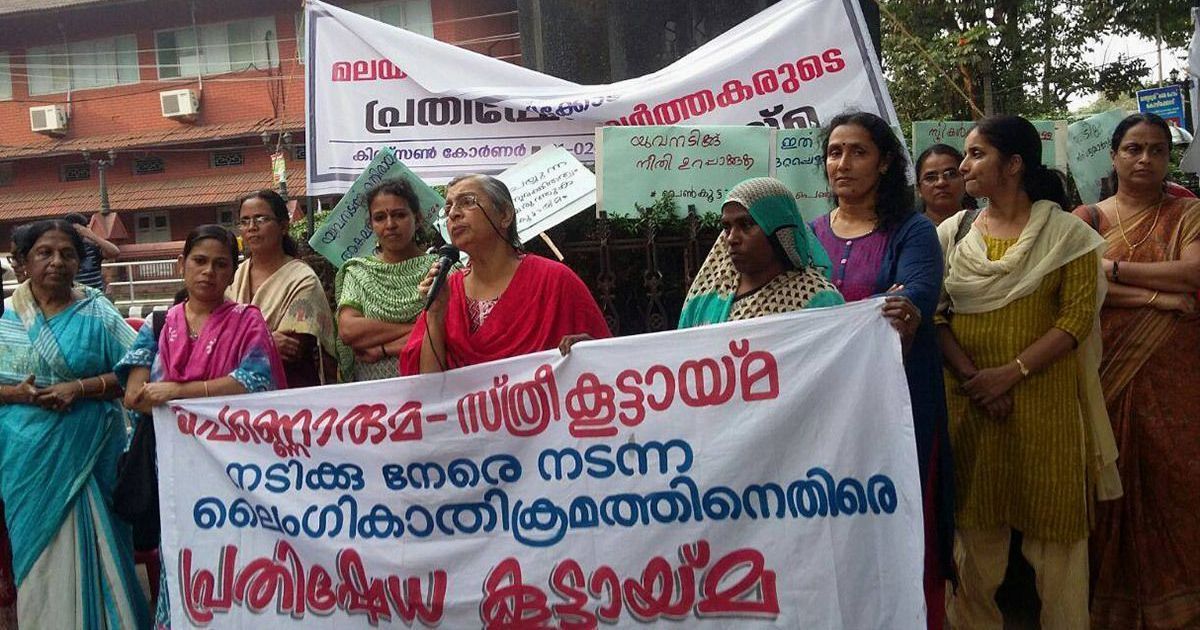The Malayalam film industry, often lauded for its artistic brilliance and cultural significance, today engulfed in a scandal that has rocked the state’s socio-political landscape. The revelation of a sex scam involving prominent figures from the industry has exposed a sordid underbelly of exploitation, coercion, and abuse of power. What is even more shocking is the government’s apparent helplessness and reluctance to take swift and decisive action, raising questions about the state’s commitment to justice and women’s safety. Malayalam’s film industry, known for its progressive narratives and path-breaking cinema, has been shaken by allegations of sexual exploitation involving high-profile actors, producers, and directors. Young and aspiring actresses, many of whom dreamt of making it big in the industry, have come forward with harrowing tales of being trapped in a web of coercion and manipulation. These women were reportedly lured with promises of roles in movies and lucrative projects, only to be subjected to sexual exploitation and harassment. The scam has revealed a network of powerful individuals who have allegedly used their influence to prey on vulnerable newcomers. In many cases, these women were forced into compromising situations under the guise of “casting couch” practices, with their silence ensured through threats and intimidation. This alarming pattern of behaviour is not only a gross violation of human rights but also a severe blow to the integrity of an industry that prides itself on being a beacon of social consciousness.
Despite the mounting allegations, the response from the authorities and the government has been disappointingly slow. Victims who dared to speak out have faced character assassination, online abuse, and threats to their lives, all while the accused continue to enjoy positions of power and influence. The police, who are supposed to be the custodians of law and order, have been criticized for dragging their feet on the investigation, raising suspicions of collusion with the perpetrators. Several influential names have surfaced in connection with the scam, but the lack of concrete action suggests a disturbing trend of shielding the powerful while silencing the powerless. Even after multiple women have come forward with similar stories, the government’s response has been tepid at best, with vague promises of “investigations” that lead nowhere. This has led to a growing perception that the state machinery is more interested in protecting the reputation of influential individuals rather than ensuring justice for the victims. The Kerala government, which has often been vocal about women’s rights and gender equality, finds itself in a tough spot. The revelations have cast a long shadow over its proclaimed commitment to justice and safety for women. In a state where the ruling government has been quick to react to political challenges, its lethargy in addressing this scandal suggests either a lack of political will or a more sinister complicity. The government’s failure to provide adequate protection to the victims and expedite the investigation process has led to widespread outrage and protests. Political analysts argue that the state’s inability to act decisively is a reflection of deep-seated issues within the system. The cozy relationship between the film industry and political elites could be a factor contributing to the apparent inertia. This scandal is not just an isolated incident but symptomatic of a larger, more systemic problem — the nexus between politics, money, and power in Kerala.
The public outcry over the handling of the case has been growing louder. Women’s rights activists, civil society groups, and concerned citizens have taken to the streets demanding justice for the victims and stringent action against the perpetrators. Social media has been flooded with calls for accountability, with many highlighting the stark contrast between the state’s rhetoric on women’s safety and its actual handling of such a grave issue. The anger is palpable, and the people of Kerala are demanding answers. The situation has also drawn attention to the glaring gaps in the legal and judicial processes that are supposed to protect victims of sexual exploitation. The need for systemic changes, better laws, and a more sensitive approach to handling such cases has never been more urgent. If the Kerala government wishes to salvage its image and regain public trust, it must act swiftly and decisively. This means ensuring a thorough, transparent, and impartial investigation, providing protection and support to the victims, and holding the perpetrators accountable, no matter how powerful they may be. The film industry, too, must introspect and clean up its act, establishing strict codes of conduct and ensuring a safe environment for all its members. The Kerala film industry’s sex scam is a wake-up call for the state and the country at large. It is a stark reminder that no matter how progressive a society claims to be, there is always a need to be vigilant against the misuse of power. The government’s helplessness in the face of such a scandal is not just a failure of governance but a betrayal of the very principles it claims to uphold. It is high time for the authorities to step up and deliver justice — for the victims, for the industry, and for the people of Kerala.






